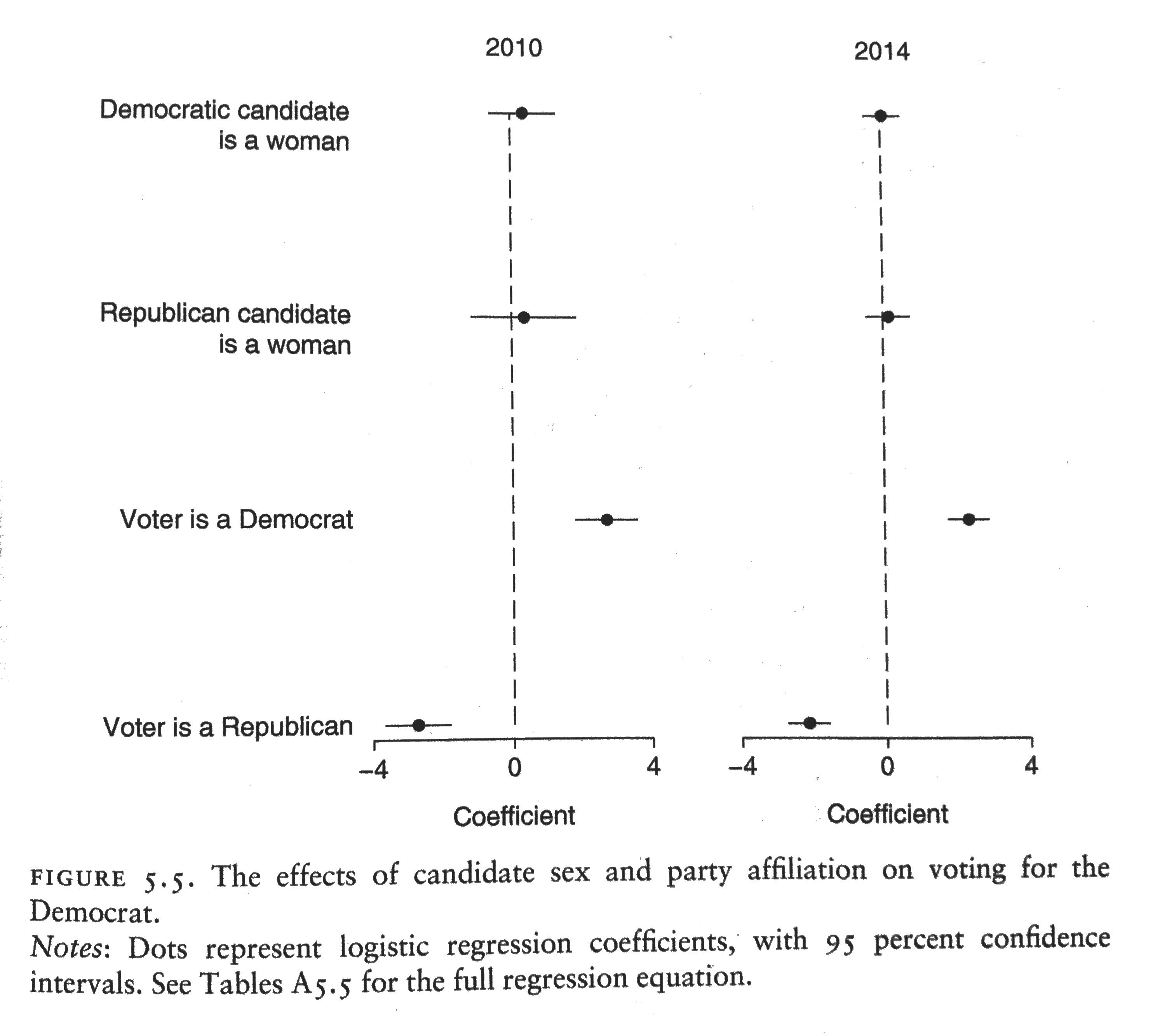The U.S. House up for grabs and many women are running as challengers today incumbents and for open seats. Del. Aruna Miller’s bid for the open Sixth Congressional District is a great example. Many Americans believe that it is harder for women than men to run and to win these elections. In particular, women are subjected to sexist media coverage with too much focus on how they appear. Female candidates also find it harder to raise money and face bias from voters, so they have to be more qualified than men to win election to Congress.
None of this is true.
More specifically, political science research on congressional elections doesn’t support these conclusions. Gender matters in elections but it doesn’t shape House elections in these ways.
Today’s post borrows heavily from research by Jennifer Lawless. Jen is Professor of Government at AU, though we are unfortunately losing her to UVA in the Fall, and Director of the Women and Politics Institute. She has written much of the best and most cutting edge scholarship on women running for office. In particular, I rely on a book she coauthored with GWU Prof. Danny Hayes, Women on the Run: Gender, Media and Political Campaigns in a Polarized Era.
Media Coverage
Let’s start with the media. In their study, Hayes and Lawless looked at articles in the top local newspaper from the last month of every 2010 and 2014 congressional campaign. Despite their decline, newspapers remain the most influential source of U.S. House campaign coverage. Among the 4,524 articles coded, they found exactly 32 references to candidate appearance: Source: Danny Hayes and Jennifer L. Lawless, Women on the Run, p. 66.
Source: Danny Hayes and Jennifer L. Lawless, Women on the Run, p. 66.
In other words, 0.7% of newspaper campaign coverage mentioned appearance. Rather than harping constantly on candidate appearance, such discussion is almost nonexistent in newspaper coverage of congressional candidates. One reason for the decline is that the novelty of women running for Congress has vanished for the most part.
Another is that men and women run very similar campaigns in terms of the issues that they discuss. Hayes and Lawless find that party plays a far greater role than gender. Analysis of congressional candidate television ads and tweets reveals that candidates tend to emphasize similar issues with gender differences being small and only rarely statistically significant.
Similar campaigns result in similar press coverage. Gender differences in the issues emphasized in newspaper coverage are small and usually not statistically significant. As the focus on issues specific to one gender is small, so is coverage of those issues. Additionally, while party plays an enormous role in how voters view candidates, gender differences are once again small (often to the benefit of women) and not statistically significant.
Winning Elections
When women run for Congress, they do just as well as men.
This is not a new conclusion. In her 1996 book, A Women’s Place is in the House: Campaigning for Congress in the Feminist Era, Barbara Burrell did not find that women are penalized for their gender by voters at the polls. Hayes and Lawless arrived at the same conclusion in their more recent study of the 2010 and 2014 elections.
 Source: Danny Hayes and Jennifer L. Lawless, Women on the Run, p. 107.
Source: Danny Hayes and Jennifer L. Lawless, Women on the Run, p. 107.
The graph above presents the relative impact of gender and party on the probability of a the success of the Democratic U.S. House candidate after controlling for a variety of factors. Gender has almost no impact, as indicated by the small coefficients. The overlap of the confidence intervals, shown by the lines around the dots, with zero indicates that candidate gender has no statistically significant impact on the outcome.
Other research not reviewed here also indicates that women do just as well in raising campaign funds – no real surprise as women dominated the world of fundraising at the national Democratic Party even 30 years ago in the late 1980s. They also don’t need to be more qualified – women do just as well as men with equivalent qualifications.
So why do women hold substantially fewer elected offices than men in the U.S.? That’s the subject of tomorrow’s post.
